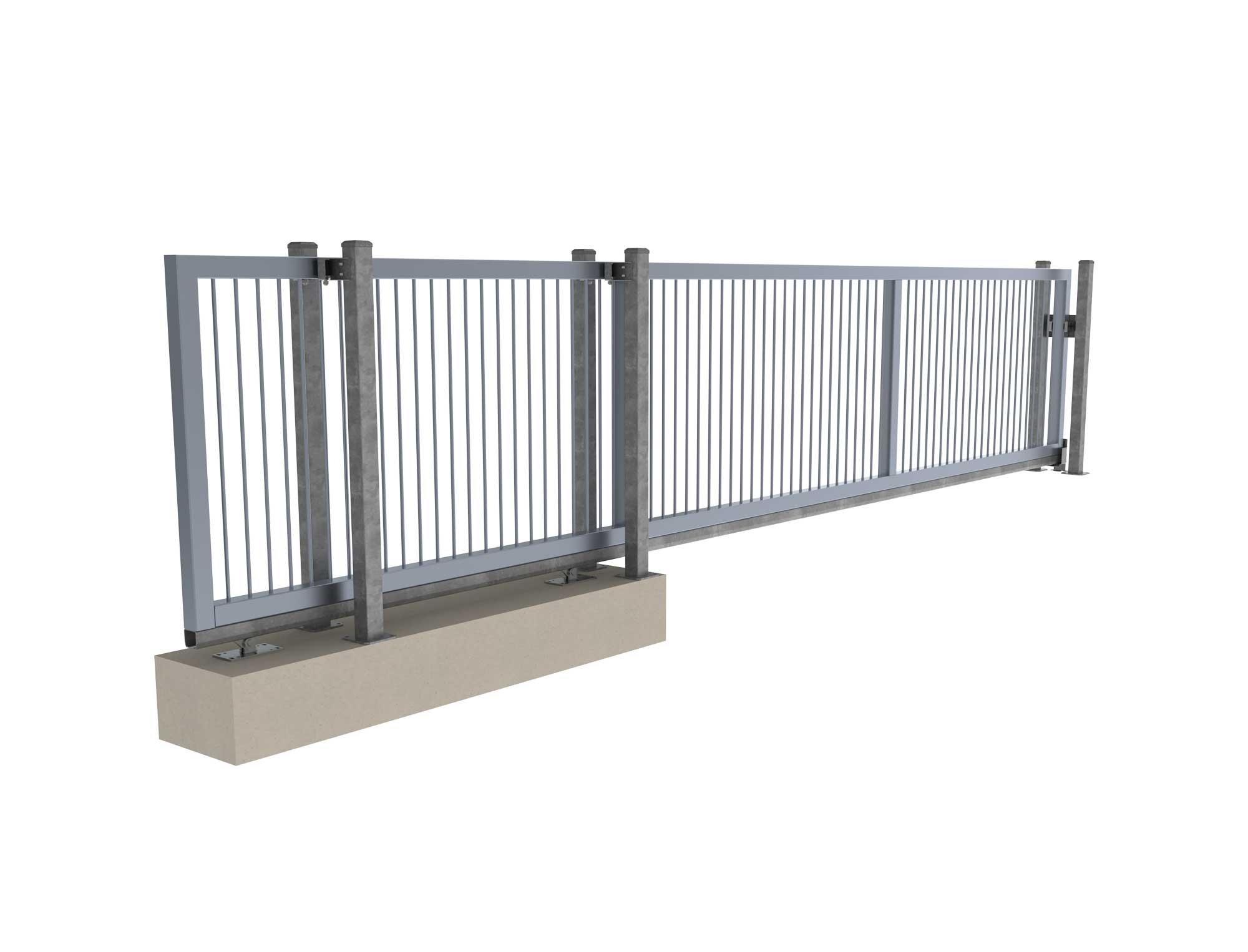Gates are an important component for controlling access to industrial or commercial properties, facilities, housing developments and public spaces. When deciding on the best option for you, you need to consider a range of factors: opening size, security level, whether it should be a track slider, cantilever slider or swing, standard or ornamental. And, of course, you need to decide on what material the gate is made from.
In high security situations, steel gates are the preferred choice in all sectors in which Hampden works due to its strength. However, aluminium gates do offer some advantages over steel gates, and these should be considered as aluminium may be the best choice for your needs.
The Durability of Aluminium
Steel is corrosive, while aluminium is not. This makes aluminium a superior choice for coastal areas where materials are exposed to corrosive salt air (which is most of Auckland).
For a steel gate to be resistant to corrosion it must be Hot Dip Galvanised, but this does not necessarily mean it is rust-proof.
Interestingly, aluminium has a natural resistance to corrosion. It is protected by a thin layer of aluminium oxide. When the aluminium oxide gets wet, its structure changes just enough to create an inert outer layer impervious to the damaging properties of oxygen. This means aluminium gates remain aesthetically pleasing for years.
Aluminium and Powder Coating
Because of its resistance to corrosion, aluminium doesn’t need to be painted or coated, but when it is powder coated, it provides a long-lasting, durable finish in a range of colours and provides a much better finish than steel. That’s because when a Hot Dip Galvanised (HDG) product is powder-coated, you get an industrial rough finish that does not offer a good bond for the powder coating.
Powder coating bonds well to aluminium, attracting warranty periods of up to 10 years. Plus, it is less susceptible to scratching or chipping and has better resistance to colour fading (NOTE: it can be up to 4x more expensive to apply a paint finish on HDG and warranties are difficult to obtain).
Weight and Automation
Although aluminium is not as strong as steel, steel is typically 2.5 times denser. This means aluminium is much lighter. Aluminium also has a high strength to weight ratio. This lower weight gives aluminium several benefits when used to construct gates.
Gate motors controlling the movement of the gate have an extended life. The gate motor must lift, slide or swing the gate open and closed every time someone passes through. Aluminium’s lighter weight means the gate motor has less work to do, with subsequently less wear on the equipment, helping it last much longer. It may also mean you can specify a lower spec’d motor with the bonus of a lower cost. Lower weight also means lower operating cost over the life of the gate.
Aluminium and Maintenance
Under normal conditions, aluminium gates do not need to be repainted during their lifetimes. This leads to a significant saving on maintenance over the life of a gate. When cleaning is required, a bucket of soapy water, a scrub with a brush and a rinse is the most maintenance aluminium gates normally ever need to stay looking great for years.
How to decide which is right for you
Every site and each application brings its own needs and challenges. At Hampden, we have the experience to help you work through the various options to ensure you make the right decisions. To start these discussions of your needs around automated gates, get in contact with the Hampden team today.

































